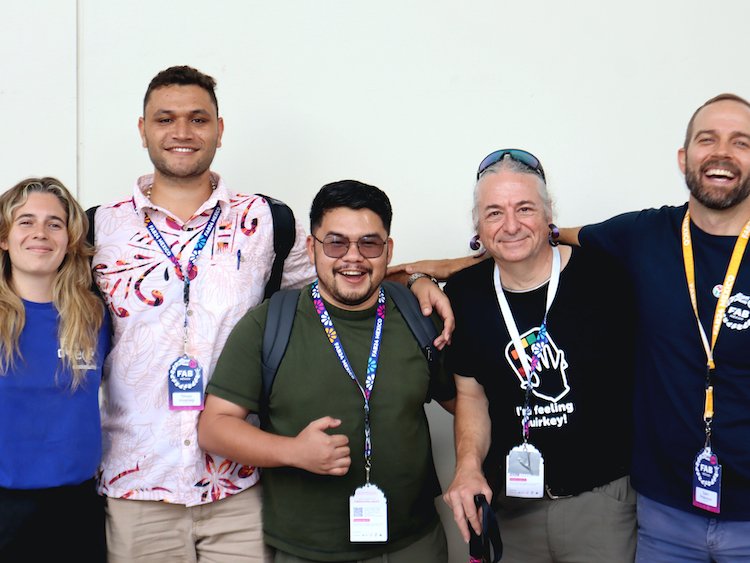An Investment in Community — With Big Returns
Published on September 3rd, 2024
Our annual FABx meetup has proven to be one of the most effective ways to promote the exchange of knowledge across the international Fab Lab Network. Yet, we recognize that attending the event in person represents a significant financial investment—one that may be out of reach for some members of our community. In our ongoing effort to expand access to critical information and include as many voices in the conversation as we possibly can, the Fab Foundation commits to sponsoring a group of attendees each year, providing a complimentary ticket to the Fab Lab Conference & Symposium, accommodation for the duration of the event, and the opportunity to give a presentation to all in attendance. This program has been incredibly successful, yielding some of the most spectacular outcomes imaginable. And we’d like to share a few highlights from FAB24 Mexico.
The real beauty of FABx comes from what each individual puts forth and draws from the experience. Some of these Fabbers made their mark by presenting thoughtfully curated workshops that focused on contemporary societal concerns, guiding participants toward creative hands-on solutions.
Vik Olliver - Masterton, New Zealand
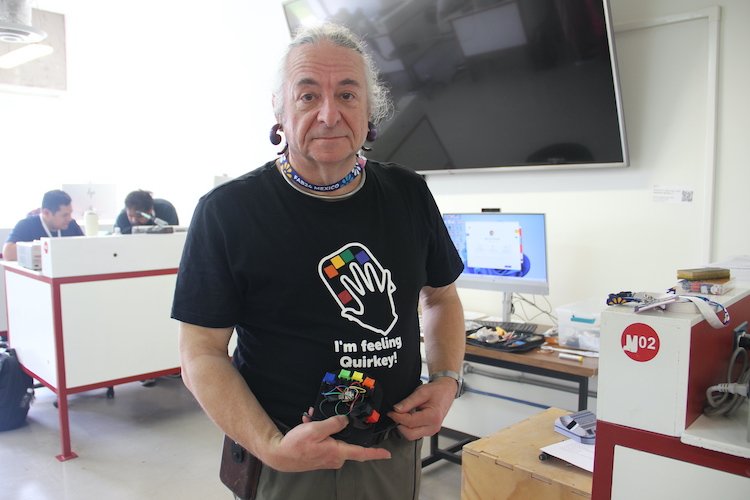
I ran a workshop to show labs around the world how to make the Quirkey Accessibility Keyboard. I was delighted that the workshop took place in a proper electronics lab with enough equipment for everyone to work on the software and hardware for their Quirkey as a group. All the Quirkey kits went, and everyone left with a working one.
The workshop not only included a couple of very notable hardware experts who joined in and helped other participants, but also resulted in people offering to help with translation into other languages. There was great social and professional interaction, with people updating me on projects, updated hardware, and new tricks and tools that I can report back to the Masterton Lab on. I also met with the Czech team and will have plenty to offer to the next conference.
I was surprised to find that there were four other implementations in existence based on the original hardware and software by other labs that I had not previously been aware of. The Quirkey project feedback will send the accessibility keyboard in new directions. This has helped me firm up the new version that I have been working on for people with fewer than five digits.
Paola Zanchetta - Amsterdam, The Netherlands
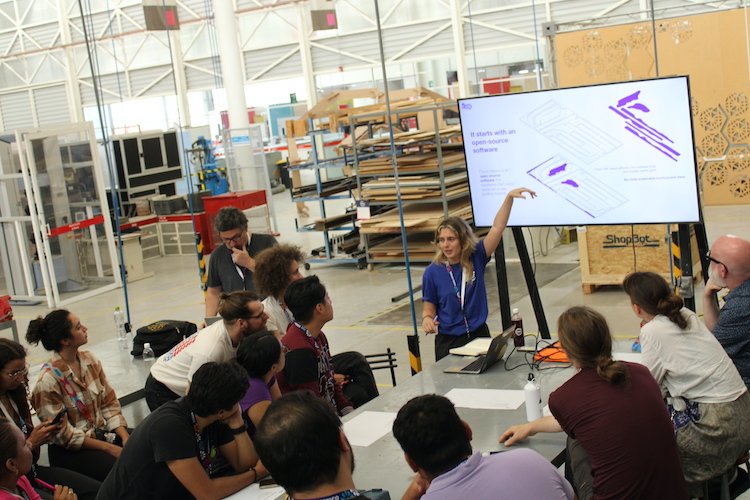
Seeing FAB24 as an opportunity to create community innovation and impact, I wanted to promote a paradigm shift from a waste-centric mindset to one centered on valuing resources. I conducted a workshop on the project I’m currently immersed in: Found Objects. This project makes use of open-source software to transform CNC industrial wood waste into innovative materials and valuable resources before production even begins.
Presenting this project at the Fab Conference was an absolute thrill! Around 25 participants from diverse backgrounds—teachers, students, woodworkers, software developers, designers, architects, makers, computer scientists, and entrepreneurs—attended the workshop. It was heartening to see such a multicultural group engaging with the project in meaningful ways.
Participants brainstormed how to integrate the software into their local workshops and projects, bringing ideas to life with cardboard prototypes. In groups, they decided which ideas to develop at a human scale using pieces of found objects made from CNC waste generated by Fab Academy students from Ibero Puebla University.
The interactions during the workshop were incredibly rewarding, with participants proposing new opportunities to further develop the software and local students and teachers offering to test it in their labs in the coming year. These meaningful conversations planted the seeds for potential future collaborations, spreading the project’s impact globally. The feeling that stays with me after the conference is one of deep inspiration and excitement.
PHIRIP (Ikue Kawamura) - Hamamatsu, Japan
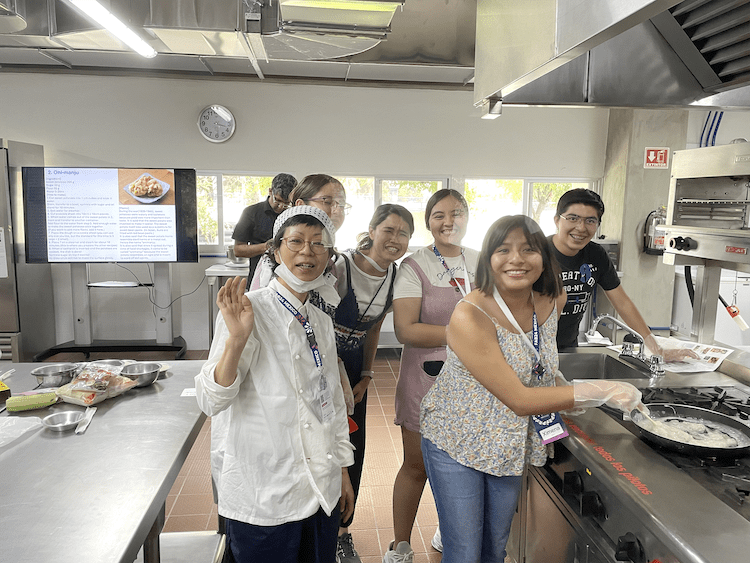
I have been conducting research in Japan to make local cuisine easier to prepare by using AI systems to modify regional recipes according to the availability of ingredients. This was the first time I conducted a workshop overseas. The main purpose of this workshop was to broaden our perspective on local cuisine outside of Japan and to link this to future development.
I was able to teach participants about Japanese food culture, explain the AI application I use to generate recipes, and have everyone cook and enjoy a food item. The highlight was that we created seven teams to cook each of the recipes, and all the dishes were completed properly and tasted delicious. Some of the dishes were made differently or looked different from what we had imagined from the generated recipes. And in some cases, people successfully corrected the incorrect part of the AI-generated recipe, or replaced it with something else.
It was very interesting to see the different dishes produced by the various cooks in the actual cooking process after the recipes were generated. Based on these outcomes, I would like to evolve the workshop and create a structure for discussion about educational tools that can deepen our understanding of food culture and ingredients. I often do workshops for students and children and would like to apply what I learned from my experience at FAB24.
For some who attended FAB24, what stood out most prominently was the chance to engage in deep human-to-human interactions and cultural exchange with like-minded people from all across the globe.
Walter Gonzales Arnao - Lima, Peru
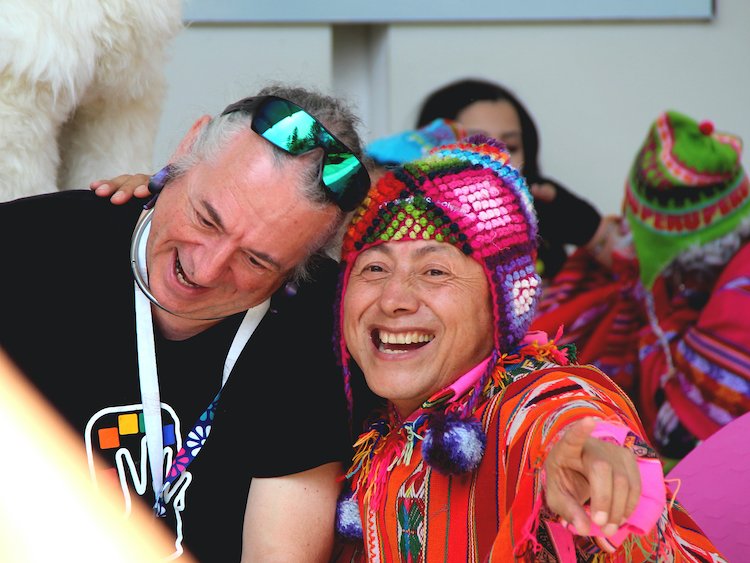
FAB24 Mexico was an opportunity for me to grow as a person. It was a very rich cultural experience and also a lesson in love. I met many people from all over the world; it was wonderful. They all have big hearts, and they share their knowledge and experiences. The most important thing is to learn from their values, principles, and ethics. They all changed my life for the better.
I also learned a lot about new materials and new technologies. Thanks to these people and their willingness to share, I am a better teacher. I will share all my knowledge with my students in Lima, Peru. My community will become more efficient by making production processes more efficient. I will be able to create new designs and research work with my students. In addition, new contacts in the Fab Lab Network will help me create new projects. I have received many suggestions to improve my projects, and I thank all those who supported me.
Roberto Gallo - Quito, Ecuador
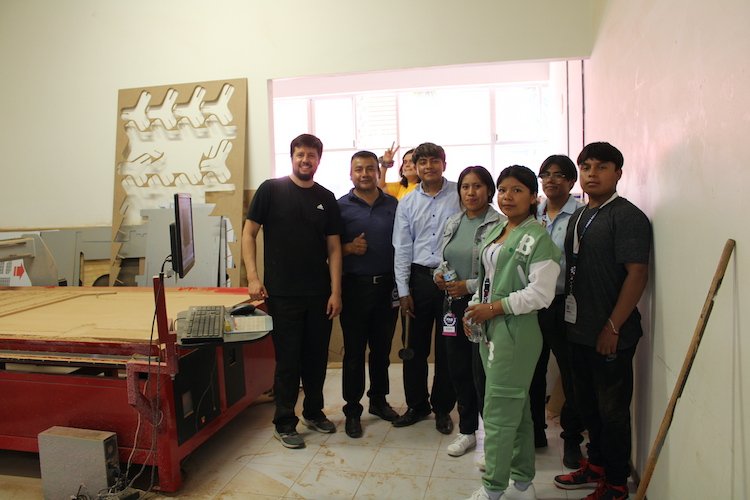
At a previous Fab Lab Conference in Chile, I did a FabLat Pavillion that joined 15 Latin American countries. This year, I wanted to make an Ibero Pavillion, joining more continents, countries, and Fab Labs to the project. I am grateful to the Fab Foundation for giving me the opportunity to fit this activity into the program!
This was a chance to reconnect to the people in the Fab Lab Network. I was super glad to see good friends who are doing great work. It’s important to reconnect with all of my friends. And I also made some new contacts and discovered other opportunities.
I can see clearly that the Fab Lab movement is strong, and I am here to keep promoting and helping the community to transcend. I will keep pushing to achieve our collaborative dreams and goals. And I hope we can all continue to positively impact our environment and many lives.
The conference is also designed to be a platform to establish and strengthen professional connections, laying the groundwork for novel partnerships. These participants took full advantage of the network effect.
Luis Alberto Mayorga Vera - Mérida, Mexico
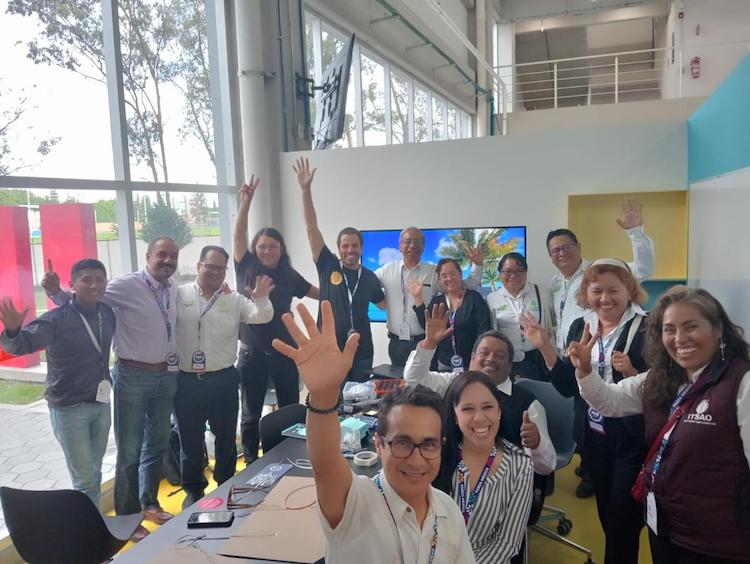
I consider this event a gamechanger in a very positive way. I found a lot of interesting and novel workshops and projects. I met people I only knew online previously. I could connect confidently with people from common professional fields and common motivations. And I felt supported by the organizers and sponsors all the time.
For the first time, I was able to mix my design, musical, and educational skills in an extended (8 hours) workshop for non-specialized people in any of these areas. This allowed me to meet people with educational and digital fabrication backgrounds for future collaborations. I found many teachers and musicians interested in taking the workshop. I felt motivated by the interest of the participants and how they valued the information and activities I prepared.
I was also fortunate this year to be part of the host team at the events in Yucatán, working with the Fabricademy group for the Future Fabrics bootcamp and with the Fab City Foundation team for the Fab City Summit 2024. I got to meet very passionate people in an inclusive and friendly environment, really interesting people from all over the world, with common interests.
Timoci Vosailagi - Suva, Fiji
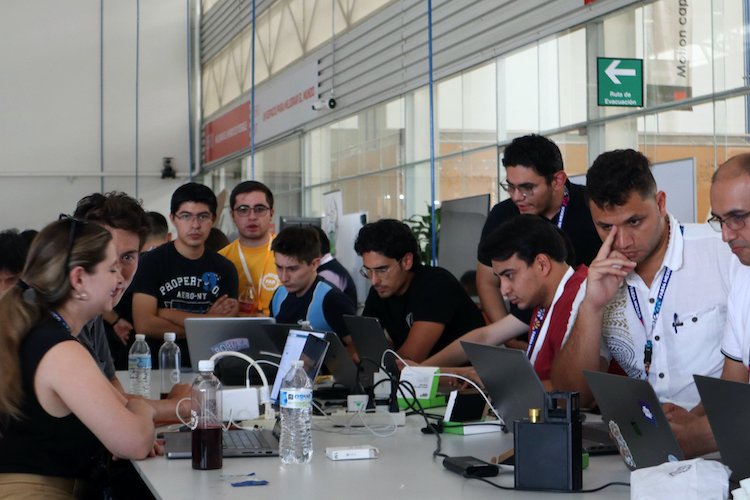
Attending FAB24 provided me with a rare opportunity to explore the realm of technical innovation while also marking a significant milestone as the first Fijian to attend a Fab Lab conference. The chance to connect with like-minded individuals from around the globe was invaluable. I am eager to bring back the knowledge and experiences gained to further benefit the Pacific community. Our region is full of inquisitive, artistic, and innovative people, but many of them lack access to the technology that can help turn their ideas into reality.
A major takeaway from FAB24 was the opportunity to network with people from diverse fields around the world. The relationships I built during the conference feel promising, both for myself and my team back in Fiji. These connections are beginning to bridge the gap between the South Pacific and the rest of the world concerning Fab Labs. I return from Puebla with insights and knowledge that I am eager to share with my team. The technology that once seemed out of reach now feels within our grasp, and I am more determined than ever to help bring down the barriers that have held us back.
Charles Vincent Barrete - The Philippines
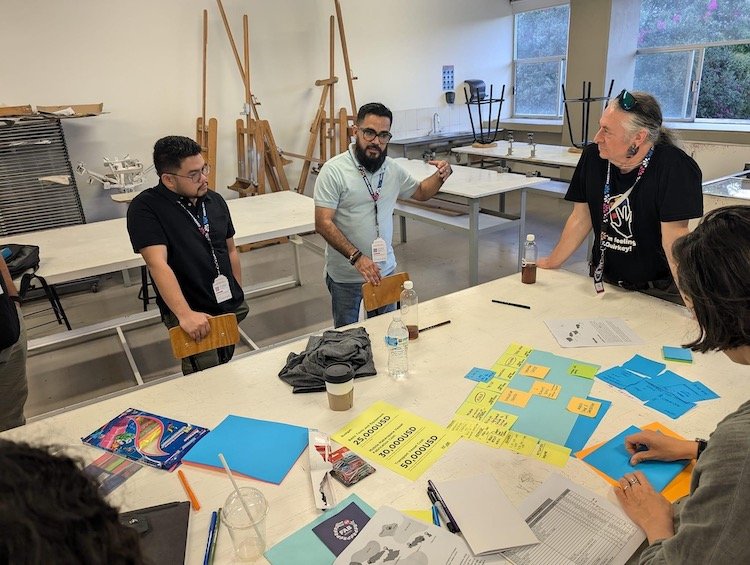
One of the two roles I represented at the conference was as the Regional Technical Manager in the Asia-Pacific Program for Field Ready, a non-profit organization focused on localizing aid supplies and capacity. An example of our work is the first-ever locally made Mobile Makerspace in the Pacific. My colleague, Timoci Vosailagi, and I co-facilitated a workshop on "How to Build a Mobile Makerspace for Disaster Response." This helped us connect with Gerrit, who has worked with Tolocar (a Mobile Makerspace in Ukraine) and is part of a team that built one in Germany. He invited us to participate in his workshop, which led to the idea of forming a Mobile Makerspace Working Group.
With the increasing number of Mobile Makerspace initiatives, it’s appropriate to start a group where people can connect, seek advice, or help others pursuing similar initiatives. It could also serve as a starting point for those interested in building their own. We plan to explore ways to increase visibility and connection between mobile labs in the future, including building a platform to map mobile labs and connect with them directly. This working group will continue at FAB25 in the Czech Republic.
I am overjoyed to have attended FAB24! I am very thankful to the Fab Foundation for this opportunity. I assure you that your investment will not go to waste, and everything I learned will benefit not only me but thousands of people in the Asia-Pacific region.
Craig Nesty - Dominica
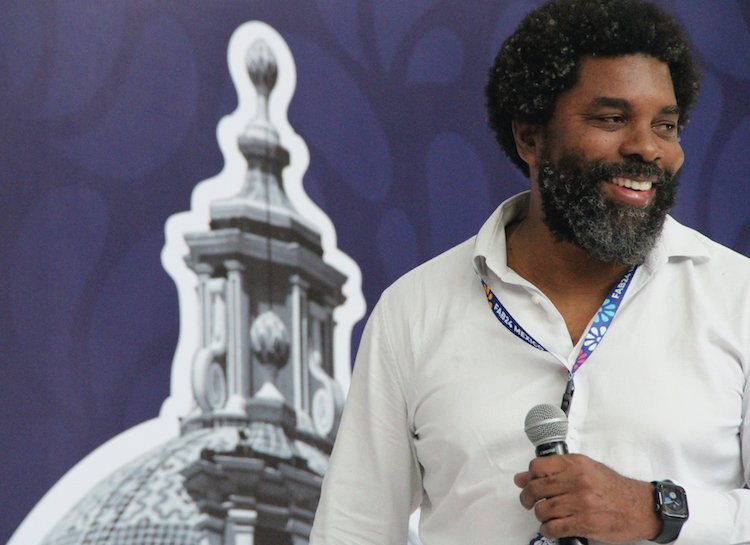
I attended FAB24 Mexico hoping to create a communication channel that would help me establish a Fab Lab in Dominica. I believe this will be transformative and position Dominicans to truly participate in the digital and technological revolution, moving us from just being importers and consumers to producers. The real impact, though, will come when we can participate in Fab Academy and take advantage of the global network of experts and professors providing personalized tutelage to assist with building solutions to local problems. I firmly believe just having access to such a network will catapult Dominicans to full participation in the future.
Prior to FAB24, I had no connection to the Fab Lab Network. I did not expect such a warm community! After I gave my presentation, I received such an overwhelming show of support and encouragement that I now believe I have all the tools necessary to make Fab Lab Dominica a reality. FAB24 helped me immensely with professional networking. I now have contacts from Qatar, Italy, USA, Mexico, China, Japan, and the Czech Republic, and I’ve managed to build relationships with a number of people who have all expressed an interest in helping me achieve my goals. The conference exceeded my expectations.
Clearly, FAB24 Mexico would not have been such a success without the impactful presence of these enthusiastic Fabbers and the deep connections they forged with other members of our community. We're so happy that they were able to attend the event this year, joining us in the reciprocal process of imparting and absorbing knowledge. And we deeply appreciate every one of their contributions. Cheers!!
